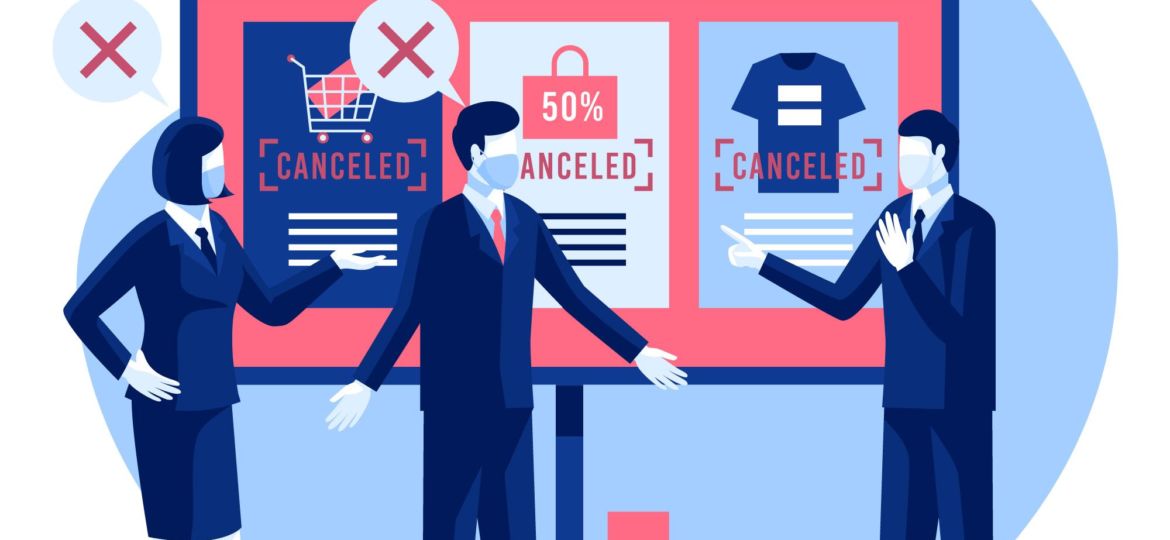The European Commission is increasing pressure on e-commerce platforms, with fast fashion retailer SHEIN currently at the center of multiple investigations.
E-commerce
The UK’s Online Safety Act 2023 (OSA) introduces a new legal framework to make the internet safer, especially for children. It places firm duties on online service providers to prevent and remove harmful or illegal content. A recent case involving OnlyFans demonstrates that Ofcom takes the enforcement of the OSA and other online safety regulations seriously. Fenix International Limited, the company behind OnlyFans, was fined £1.05 million for providing inaccurate information about its age verification processes.
05 May: Ofcom Initiates First Investigation into Individual Service Provider Under Online Safety Act
Ofcom has opened its first formal investigation into an online service provider under the Online Safety Act (OSA). The regulator is looking into whether the operator of an online forum has failed to meet its legal duties under the new law. Specifically, Ofcom is examining whether the provider has:
On April 23, 2025, the European Commission wrapped up investigations into Apple and Meta (Facebook) for breaking rules under the Digital Markets Act (DMA). Apple was fined €500 million for limiting how app developers can guide users to pay outside the App Store (a practice called “anti-steering”), and Meta was fined €200 million for giving users a “pay-or-consent” choice — either allow their data to be used for personalized ads or pay for an ad-free version.
The UK’s Online Safety Act (OSA) introduces new rules for online platforms that allow users to interact or provide search services. If your business offers online services in the UK, you need to understand these changes and how they affect you.
On 1 January 2025, the UK’s new regime for regulating digital markets, set out in the Digital Markets, Competition and Consumer Act 2024 (DMCCA), came into effect, bringing major changes to consumer protection law. The DMCCA gives the Competition and Markets Authority (CMA) strong enforcement powers, including the ability to impose fines based on a business’s global turnover. If your business deals with UK consumers, it’s essential to understand the impact of these changes and prepare for compliance.
The Online Safety Act (OSA) places legal responsibility on businesses operating a wide range of online services to keep UK users safe online. All in-scope services (see more information below) with a significant number of UK users or targeting the UK market are covered by the OSA, regardless of where they are based. One of the first deadlines is for online service providers to complete an illegal content risk assessment by 16 March 2025. In this article, we’ll explain what this means and how your business can comply.
The UK’s Online Safety Act introduces new rules for implementing online age checks. It requires service providers offering pornography or other harmful content to implement ‘age assurance’ to prevent children from accessing it. If your service falls within this scope in the UK, there are specific rules you need to follow, which we’ll explain in today’s article.
The way businesses work and connect with customers has changed a lot in the digital age. To adapt to this changing landscape, the European Union (EU) has introduced the Digital Services Act (DSA), a ground-breaking regulatory framework designed to govern digital platforms and services and established a new set of rules to regulate these service providers.
With Black Friday, Cyber Monday, and Christmas sales around the corner, online businesses have a prime opportunity to increase sales. But with great opportunities come responsibilities — especially for businesses targeting European Union (EU) consumers. Here’s a practical legal guide to help you maximise seasonal sales while staying compliant with EU laws.
Online platforms that allow users to share content are required to manage content moderation and, when necessary, suspend user activities for violations of legal obligations or platform rules. The Digital Services Act (DSA) sets out important guidelines for these platforms, especially regarding the suspension of user accounts or activities. This article explains the conditions under which platform providers can suspend user access, offering practical advice and examples for platforms that must comply with these rules.
To engage customers responsibly, businesses need to find a balance between strong marketing efforts and fair commercial practices. The European Union (EU) has strict regulations to protect consumers from unfair commercial practices, and it’s vital for e-commerce companies to understand and comply with these rules. Failure to do so can result in legal penalties and harm a brand’s reputation.
In a significant development, various EU consumer organizations, including the European Consumer Organisation (BEUC), have lodged a formal complaint with EU authorities against leading video game companies. This complaint alleges that these companies engage in practices that violate EU consumer protection laws, raising critical concerns about compliance and consumer rights.
In 2023, Citizens Advice revealed a staggering figure: consumers spent nearly £2.1 billion on items they didn’t want, need, or later regretted over the course of a year. This spending was largely driven by manipulative online choice architecture – a design strategy used by e-commerce websites that push consumers into making quick decisions they might regret.
The laws in the European Union (EU) provide consumers with the right to change their minds and cancel online purchases within a 14-day period. However, questions have emerged about the applicability of this right when subscriptions automatically renew, especially post a free trial. The European Court of Justice (ECJ) provided clarity on this issue through a case involving a dispute between a consumer protection association and an online learning platform in Austria.
A shareholders agreement is a legally binding contract between the shareholders of a company and the company. It outlines the rights, responsibilities, and obligations of the shareholders and governs the relationship between them and the company. The parties to a shareholders agreement are typically the founder shareholders and the company and may also include investor shareholders and key stakeholders such as employees who have equity stakes. A shareholder agreement does not have any prescribed form and as such can be flexibly drafted to meet the needs of the relevant parties.
Navigating the landscape of intellectual property (IP) licenses can be complex, particularly when dealing with university technology transfer offices. These offices manage the commercialization of innovations developed within academic institutions. Securing a license from a university technology transfer office requires a strategic approach and a understanding of the process. Here are some key considerations and steps to successfully negotiate an IP license.
Enforcing the Digital Services Act (DSA) involves a broad spectrum of investigative and punitive measures accessible to both national authorities and the European Commission. The Commission takes the lead in supervising and enforcing the DSA, assisted by Digital Services Coordinators and the Board.
The term “dark patterns” has become increasingly relevant, sparking concerns among online businesses. Recent actions by EU authorities have placed a spotlight on these tactics, prompting companies to revaluate their digital strategies. In this article, we’ll delve into what dark patterns entail, explore their legal ramifications, and offer insights for businesses navigating this landscape.
You’re scrolling through your favorite dating app, hoping to find a connection, when suddenly you discover that the prices you see aren’t the same as what others are seeing. Imagine the frustration of realizing that the premium services you desire come with a price tag tailored specifically for you, without your knowledge. It’s akin to navigating a maze blindfolded, unsure of whether you’re getting a fair deal or not.
The European Parliament recently approved the Artificial Intelligence Act (AI Act) on March 13, 2024, which is set to establish comprehensive regulations governing the use of artificial intelligence (AI) within the European Union (EU). Much like the influential impact of the General Data Protection Regulation (GDPR) on data privacy, the AI Act aims to set a global standard for AI regulation by imposing obligations on AI systems based on their potential risks and impacts.
The laws in the United Kingdom (UK) and the European Union (EU) provide consumers with the right to change their minds and cancel online purchases within a 14-day period. However, questions have emerged about the applicability of this right when subscriptions automatically renew, especially post a free trial. The European Court of Justice (ECJ) recently provided clarity on this issue through a case involving a dispute between a consumer protection association and an online learning platform in Austria.
The Digital Services Act stands out as the most important and ambitious regulation globally in the realm of protecting the digital space against the spread of illegal content and safeguarding users’ fundamental rights, heralding a safer and more equitable online environment throughout the European Union (EU). With the deadline for compliance approaching, this article breaks down the crucial next steps to help your online business get on the right track.
When selling products or services online, having fair and clear rules in your contracts with customers is crucial. These rules, often outlined in Terms and Conditions (T&Cs), need to be done right – presented correctly, at the right time, and definitely without any blacklisted, grey-listed, or otherwise unfair terms.
The European Commission has officially opened formal proceedings against X, formerly known as Twitter, under the Digital Services Act (DSA). This formal action aims to determine if X has violated the DSA in areas such as risk management, content moderation, dark patterns, advertising transparency, and the provision of data access for researchers. This is the first time the commission has launched formal proceedings under the DSA.
In the digital age, regulations and directives have been established to protect consumers and ensure a level playing field for businesses. Three significant pieces of legislation in this realm are the Digital Services Act (DSA), the General Data Protection Regulation (GDPR), and the Consumer Rights Directive (CRD). This article provides a brief overview of each and outlines the fines and penalties associated with non-compliance.
The European Union’s Digital Services Act (DSA) has ushered in a set of regulations to govern online services. For businesses operating beyond the EU but catering to its customers, a new rule mandates the appointment of a “legal representative”. In simple terms, this article breaks down why this requirement matters and how it helps your business follow the DSA.
As Black Friday, Cyber Monday, and Christmas deals approach, online businesses operating in the European Union (EU) need to be mindful of the regulations governing promotions and sales. Reports of shopping scams and strict penalties for misleading practices emphasize the need for online retailers to align their promotional strategies with both legal and consumer expectations.
In the United Kingdom, promotional activities like lotteries, competitions, and prize draws are common marketing tools used by businesses to attract customers. However, these activities are governed by specific laws and regulations to ensure fairness and transparency. Understanding the differences between these promotions and the relevant legal framework is crucial for business.
In the ever-evolving digital landscape, where the complexities of internet use have never been greater, the introduction of the Online Safety Act marks a milestone in the regulation of online conduct and the protection of users in the United Kingdom (UK). This article aims to provide a overview of the Online Safety Act, its key provisions, and the implications for affected businesses.
Software as a Service (SaaS) agreements and software license agreements are both legal contracts that govern the use of software, but they have distinct differences in terms of their scope, terms, and how software is provided to users. Here are the main differences between these two types of agreements.
The European Union (EU) is a lucrative market for many US-based e-commerce companies. However, selling to consumers in the EU requires compliance with a myriad of regulations and directives. This article highlights the most important e-commerce laws that US companies must be aware of when selling to European consumers.
When offering their software, vendors often seek to establish partnerships to extend their reach, tap into new markets, and leverage the strengths of other organizations in different territories or markets. Yet, while these partnerships can be mutually beneficial, vendors may wish to limit the scope of their software reselling for various reasons. These reasons can range from avoiding market saturation to ensuring the proper representation of their brand in specific territories.
Online shopping has become a staple of modern commerce, and with it comes the necessity for clear consumer protection laws. Here’s a comparison of the rights of consumers in Switzerland and the United Kingdom (UK) when it comes to returning goods purchased online.
The way businesses connect with customers has changed a lot in the digital age, offering new opportunities but also presenting new risks. To address this evolving landscape, the European Union (EU) has introduced the Digital Services Act (DSA), a pioneering regulatory framework aimed at governing digital platforms and services while establishing new rules to regulate these service providers.
In the digital space, e-commerce platforms are leveraging personalised advertising to enhance customer experiences and boost sales. Retargeting, a form of personalised advertising, has become a game changer, enabling businesses to re-engage potential customers by displaying ads based on their previous online activities. While this approach can significantly uplift conversion rates, it also entails critical considerations regarding data protection and privacy compliance, notably in the light of the General Data Protection Regulation (GDPR).
The year 2023 has marked a significant uptick in GDPR fines, making it the year with the highest penalties for data protection violations. While the world is abuzz with high-profile GDPR fines against tech giants like Meta and Google, it’s crucial to understand that smaller companies are also under regulatory scrutiny.
The European Union (EU) has taken a significant step forward in regulating online marketplaces with the new Digital Services Act, a pioneering piece of legislation that introduces various requirements for online platforms and other online service providers. One of the key provisions affecting online marketplaces is the “Traceability of Traders”, which aims to enhance transparency and accountability in the digital marketplace.
The European Union’s Digital Services Act (DSA) has ushered in a new era of online content regulation, aiming to create a more legally harmonized framework across the EU. It affects online intermediaries who offer their services (goods, content or services) on the European market, from e-commerce marketplaces and app stores to video-sharing platforms and search engines.
The way businesses work and connect with customers has changed a lot in the digital age. To adapt to this changing landscape, the European Union (EU) has introduced the Digital Services Act (DSA), a ground-breaking regulatory framework designed to govern digital platforms and services and established a new set of rules to regulate these service providers.
As the digital landscape continues to evolve, the UK government is taking action to regulate digital markets and change its competition and consumer protection regimes. One example is the proposed Digital Markets, Competition and Consumers Bill (DMCC), which aims to significantly improve consumer protection, enhance the enforcement powers of the UK’s Competition and Market Authority (CMA) and introduce substantial penalties for non-compliance. In this article, we will explore the key objectives of the DMCC and its implications for online businesses.
Gift cards have become a popular option for offering gifts and rewards in the Business-to-Consumers (B2C) domain. As a business operating in the UK, it is crucial to understand the legal rules surrounding gift cards to protect both your customers and your business. In this article, we will outline the key legal rules that gift card providers should be aware of and explain how you can comply with them.
Social media giant WhatsApp has made a significant commitment to improving transparency and user rights concerning changes to its terms of service. In response to a joint action led by the European Consumer Organisation (BEUC), Competition and Consumer Protection Commission (CCPC), the Swedish Consumer Agency, and the European Commission (EC), WhatsApp has agreed to implement measures that ensure users are well-informed about the impact of updates to its terms of service. In this article, we will describe WhatsApp’s commitments and the implications for users, as well as highlight how other online companies can learn from these developments.
Recent findings from the CPC Network have brought to light worrisome practices regarding recurring subscription payments in the European Union (EU). These practices have led many customers to unwittingly sign up for unwanted subscriptions, thanks to deceptive techniques employed by online businesses (for more information, click here). It was discovered that 10% of EU consumers have fallen victim to such unwanted subscriptions in the past. In response, the European Commission, in collaboration with the CPC Network, worked with major card schemes like Mastercard, VISA, and American Express to introduce new rules that promote clarity and informed decision-making for consumers.
Online platforms have become the go-to destinations for individuals seeking information, products, and services. In this context, search result rankings have become an essential feature, enabling users to easily search for products or compare different options. Think of it as a virtual personal shopper, always at your service, showing results that are (supposedly) tailored to your preferences.
As an online business operating within the European Union (EU), it is crucial to be aware of the legal obligations and mechanisms in place to ensure consumer protection and dispute resolution. The European Online Dispute Resolution (EU-ODR) platform is a vital component of this framework. In this article, we will explore the EU-ODR platform and the key obligations, providing valuable insights for online businesses in the EU.
The European Commission has confirmed 19 online platforms and search engines identified as ‘very large online platforms’ (VLOPs) and ‘very large online search engines’ (VLOSEs) for the purposes of the EU’s Digital Services Act (DSA). Such companies must comply with the most stringent rules of the DSA.
The Federal Swiss Council has recently announced it is considering enacting new laws to regulate large platforms, including search engines (e.g. Google), social networking platforms (e.g. Facebook), multimedia platforms (e.g. YouTube) and microblogging services (e.g. Twitter), which could have far-reaching implications for the tech industry and digital communication. The move comes in response to growing concerns about the potential misuse of these platforms, particularly in terms of hate speech, fake news, and other harmful content.
Do you know how to protect your business from liability for products sold by third-party sellers on your platform? Liability for online marketplace sales is a complex and evolving area of law, and it’s crucial for businesses to understand their legal obligations and take proactive steps to minimize their exposure to risk. In this article, we’ll outline five key steps that businesses should take to avoid liability for products sold by third-party sellers on online marketplaces under US law. Read on to learn more and protect your business.
If you are an entrepreneur offering online products to consumers based in Switzerland, or an e-commerce platform looking to expand in Switzerland, it is essential to figure out what the cooling-off period is and how it differs from other European countries. The “cooling-off period”, also known as …
![FireShot Capture 152 - Isometric laptop with shopping cart on keypad - Free Vector_ - [www.freepik.com]](https://www.loganpartners.com/wp-content/uploads/2025/06/FireShot-Capture-152-Isometric-laptop-with-shopping-cart-on-keypad-Free-Vector_-www.freepik.com_-thegem-blog-default-large.png)



![FireShot Capture 143 - Free Vector - QA engineer flat concept with software developer symb_ - [www.freepik.com]](https://www.loganpartners.com/wp-content/uploads/2025/03/FireShot-Capture-143-Free-Vector-QA-engineer-flat-concept-with-software-developer-symb_-www.freepik.com_-thegem-blog-default-large.png)










































